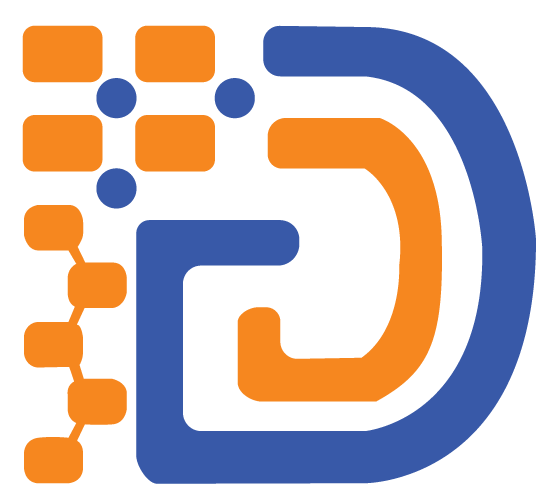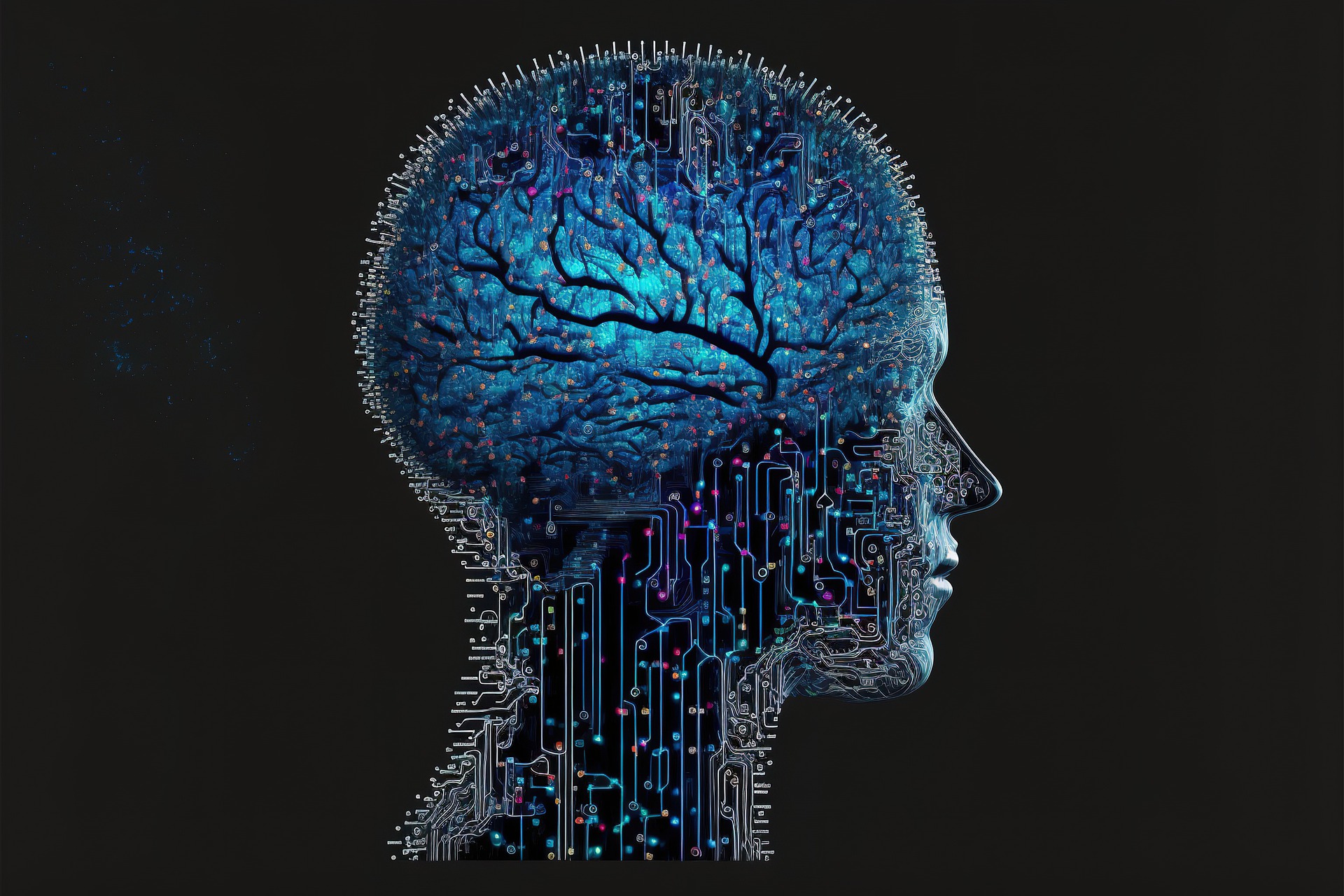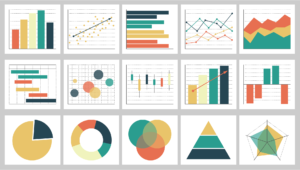The impact of Artificial Intelligence (AI) on our lives is becoming increasingly apparent. From virtual assistants to medical diagnostics and autonomous vehicles, AI is beginning to shape the way we live and interact with the world around us. With the potential to revolutionize many aspects of our lives, it is important to understand the implications of AI and how it can be used for the benefit of all. In this blog post, we will explore the importance of Artificial Intelligence and how it has the potential to improve our lives.
What is AI and its history?
The term Artificial Intelligence (AI) has been around since 1956 and refers to the development of computer systems that can perform tasks that normally require human intelligence. AI has become increasingly important in modern life, as it is used to solve problems, improve efficiency, and automate mundane tasks. In the past, AI was mainly used in scientific research and in the military, but now it is also being applied to everyday life. AI technology has advanced significantly over the last few decades. Machines are now able to learn and respond to data in ways that are much closer to human behavior than ever before. This technology is being used in a variety of ways, from robotics to machine learning to natural language processing. AI can help us analyze large amounts of data quickly and accurately, allowing us to make decisions faster and more efficiently. AI is also used in many areas of industry, such as healthcare, automotive, retail, and finance. For example, AI is used in healthcare to diagnose diseases faster and more accurately. It is also used in retail to create personalized shopping experiences and in finance to predict stock prices and suggest investments. The possibilities for AI are endless and its potential is only beginning to be realized. As AI technology continues to evolve, it will open up new opportunities for businesses, governments, and individuals alike. With continued investment and innovation in the field, we can look forward to seeing even greater uses for AI in our daily lives.
How AI is used in our lives
Artificial intelligence (AI) has quickly become a major part of our lives, playing an increasingly important role in almost every industry. From helping to diagnose diseases to automating mundane tasks, AI is used to improve efficiency and productivity in both our personal and professional lives. With its ability to rapidly process and analyze large amounts of data, AI can be used to make better decisions and identify opportunities for improvement. AI can be used in virtually any field, from healthcare to finance, retail to transportation. In healthcare, AI can help diagnose medical conditions more accurately and help doctors make more informed decisions about treatments. In retail, AI can help to create more personalized customer experiences by understanding customer preferences and behaviors. In finance, AI can be used to make investment decisions or to detect fraud. And in transportation, AI can help reduce traffic congestion and improve navigation. AI can also be used to help with everyday tasks. From automated checkout machines at grocery stores to voice assistants like Alexa and Siri, AI is being used to make our lives easier. Even something as simple as scheduling an appointment can be done with AI. There are numerous examples of AI being used to streamline processes and save time. Overall, Artificial Intelligence is becoming more and more integrated into our lives, enabling us to do more with less effort and time. By utilizing AI in everyday tasks, we can become more productive, efficient, and accurate in everything we do.
The future of AI
The future of Artificial Intelligence (AI) is a topic of much debate and discussion. AI has already been used to solve some of the world’s most difficult problems, from speeding up medical diagnostics to powering autonomous vehicles. But what does this mean for the future? AI is constantly evolving, with new developments being made all the time. This means that AI can be applied to an ever-increasing range of tasks, and its potential for aiding humans in their day-to-day lives is enormous. AI could be used to automate mundane tasks, such as sifting through data or performing basic arithmetic calculations, leaving us more time to focus on creative pursuits and other important tasks. AI could also provide more efficient solutions to complex problems. By incorporating machine learning into AI, machines can learn from the data they’re given and create new solutions to problems. This could revolutionize how we approach a number of different challenges, from finding cures for diseases to increasing energy efficiency. AI is also set to revolutionize how we communicate and interact with each other. The use of natural language processing, combined with machine learning, could allow us to have more meaningful conversations with each other and with machines. This could make it easier to share ideas, knowledge and experiences between people and machines, leading to better problem-solving and collaboration. Clearly, AI has the potential to drastically improve our lives in many ways. As AI technology continues to evolve and become more sophisticated, it’s likely that we’ll continue to see more applications for it in our daily lives. It’s an exciting prospect that promises many benefits, and one that we should all keep an eye on.
The benefits of using Artificial Intelligence
The use of Artificial Intelligence (AI) is rapidly becoming an integral part of our lives, whether we realize it or not. AI is a form of technology that is able to learn, reason, and make decisions on its own, based on the data it’s given. As a result, AI can help us solve a variety of problems, both in the real world and online. One of the greatest advantages of using AI is its ability to automate mundane tasks. For example, AI can be used to process large volumes of data quickly and accurately, allowing businesses to streamline their operations and become more efficient. Additionally, AI can be used to automate customer service tasks, such as providing personalized responses to customer inquiries. This saves time and money for both businesses and customers alike. AI can also be used to improve accuracy when it comes to making predictions and decisions. AI systems are capable of understanding patterns and relationships in data that would otherwise be too complex for humans to comprehend. This can be used to help make more informed decisions in areas such as finance and healthcare, where accuracy is paramount. Finally, AI can be used to enhance personalization. AI-powered platforms can be used to provide tailored content and recommendations that meet the specific needs of each individual user. This helps companies better serve their customers by offering them services that they actually need and want. Overall, Artificial Intelligence has revolutionized the way we interact with technology, providing us with powerful tools that can help us make better decisions and get more out of our everyday lives. It’s no wonder why the use of AI is becoming increasingly popular – it’s simply too hard to ignore!
The Drawbacks of AI
The use of artificial intelligence (AI) is becoming increasingly prominent in our everyday lives. From personal assistants like Siri and Alexa to the AI-powered smart home systems, it is hard to imagine a world without AI. However, there are some drawbacks to this technology that should not be overlooked. First and foremost, there is the potential for AI to go awry. As AI becomes more powerful and sophisticated, it has the ability to make decisions that may have unexpected consequences. This can lead to serious problems if the AI is not programmed correctly, or if its actions are not being monitored closely enough. Another issue with AI is the potential for bias. AI systems are often trained on datasets that are created by humans, meaning they can inherit our biases and prejudices. These biases can then be reinforced by the AI, leading to decisions and conclusions that may be unfair or inaccurate. Finally, AI can lead to data privacy issues. As AI becomes more widespread, companies are collecting vast amounts of data from their users, which they can then use to tailor services or make decisions. This could potentially put people’s privacy and security at risk if the data is not handled properly. Overall, while artificial intelligence has brought many benefits to our lives, there are also potential drawbacks that must be addressed. Careful consideration must be given to how AI is used and monitored in order to ensure its safe and responsible use.
How has AI impacted our lives?
The development of Artificial Intelligence (AI) has been an incredible breakthrough in our technological advancements. AI has been used in countless ways to make our lives easier, from powering everyday gadgets such as phones and computers, to driving innovations in healthcare and other industries. AI is now used in many areas of our lives, and it’s importance cannot be understated. AI can help us better understand the world around us. By analyzing large data sets, AI algorithms can make decisions more accurately than ever before. This can be seen in its applications in healthcare, where AI can identify diseases with greater accuracy than doctors. In fact, AI has revolutionized the diagnosis process, allowing doctors to spend less time on paperwork and more time focusing on their patients. AI can also help reduce costs and maximize efficiency in various industries. Companies are increasingly using AI to automate mundane tasks, freeing up employees to focus on more meaningful work. AI can also be used to develop new products, services, and processes more quickly than ever before. As a result, companies are able to reduce expenses and increase profits, which benefits everyone involved. In addition, AI can help make our lives safer by improving security systems and self-driving vehicles. Advanced facial recognition systems are able to detect criminals faster and more accurately than humans, while autonomous cars are becoming safer by the day. Overall, Artificial Intelligence is playing an increasingly important role in our lives, and its impact will only continue to grow. From healthcare to transportation, AI is proving to be an invaluable tool that will revolutionize how we live.
know about Computer Programming Languages
How does Artificial Intelligence help us?
Artificial intelligence (AI) is revolutionizing the way we interact with technology and our environment. AI can help us with various tasks such as predicting the weather, providing tailored search results, and analyzing vast amounts of data. It has the potential to revolutionize industries from healthcare to transportation and beyond. AI has allowed us to gain insight into large datasets that would otherwise be difficult for us to process. AI systems can analyze vast amounts of data quickly and accurately, providing us with results that can help us make better decisions. For example, machine learning algorithms are used to diagnose diseases, automate mundane tasks, and predict trends in the stock market. AI is also being used to improve customer experiences. Companies are using AI-powered chatbots to answer customer inquiries, allowing them to provide better customer service with faster response times. AI-driven personalization technologies are also being used by many companies to give customers more personalized recommendations and experiences. In addition, AI is playing a crucial role in autonomous vehicles. Self-driving cars use AI to navigate roads safely, helping reduce traffic accidents and save lives. AI-based facial recognition technology is being used by security systems to detect intruders and identify people in crowds. The applications of artificial intelligence are limitless, and it’s only going to become more essential in our lives as the technology advances. From healthcare to transportation, AI is helping us make our lives easier, safer, and more efficient.
What are some potential dangers of Artificial Intelligence?
The potential dangers of Artificial Intelligence (AI) are not to be taken lightly. AI can be incredibly powerful and transformative, but it also has the potential to do more harm than good if not properly managed. AI systems can make mistakes, or they could even be designed with malicious intent. Here are some potential dangers of AI that we should consider:
- Unintended consequences: AI algorithms may have unintended consequences that have not been anticipated by the designers. For example, an AI system designed to identify patterns in the stock market could inadvertently cause economic bubbles and busts.
- Misuse of data: AI systems require large amounts of data to function properly. If this data is collected without permission or consent, then it could potentially be misused for malicious purposes.
- Biased decisions: AI algorithms are only as smart as the data they use to learn. If this data is biased in some way, then the decisions made by the AI system will reflect this bias. This can lead to unfair outcomes and discriminatory practices.
- Loss of control: As AI systems become increasingly sophisticated, they could potentially develop a level of autonomy where humans are unable to control them. This could create a dangerous situation where machines are making decisions without any oversight from humans.
It is important to keep these potential dangers in mind when developing and using AI systems. By understanding the risks associated with AI, we can ensure that it is used responsibly and ethically to benefit society as a whole.
What are some concerns with AI?
As the usage of artificial intelligence (AI) continues to expand in our everyday lives, it’s important to consider the potential risks of this technology. AI is capable of making decisions quickly and accurately, and can be used to automate certain processes. However, when dealing with AI there are several concerns that must be taken into consideration. One of the most concerning aspects of AI is its potential for biased decision-making. This can happen when algorithms are built using data that has been collected from a biased source or population, leading to a “filter bubble” of information being created. This filter bubble can lead to decisions being made that don’t reflect the true diversity of a population. For example, AI models might be trained to prefer certain racial groups or genders over others, which can lead to discriminatory decision-making. Another issue with AI is its ability to make decisions without considering ethical implications. As AI technologies become increasingly powerful, their decisions could have far-reaching consequences. For example, autonomous vehicles have the potential to cause massive damage if they make the wrong decisions on the road. Similarly, AI algorithms can be used to make financial decisions that could have major consequences on an economy. Finally, there is the risk of an AI system becoming “black boxed”, meaning that it is impossible to determine how it arrived at a certain conclusion. This could lead to unpredictable and potentially dangerous outcomes, as well as lack of accountability for the AI system’s decisions. In conclusion, while artificial intelligence offers many potential benefits, it’s important to be aware of the associated risks and take steps to mitigate them. By taking a thoughtful approach to implementing AI technologies, these risks can be minimized and we can ensure that AI is used responsibly and ethically.




